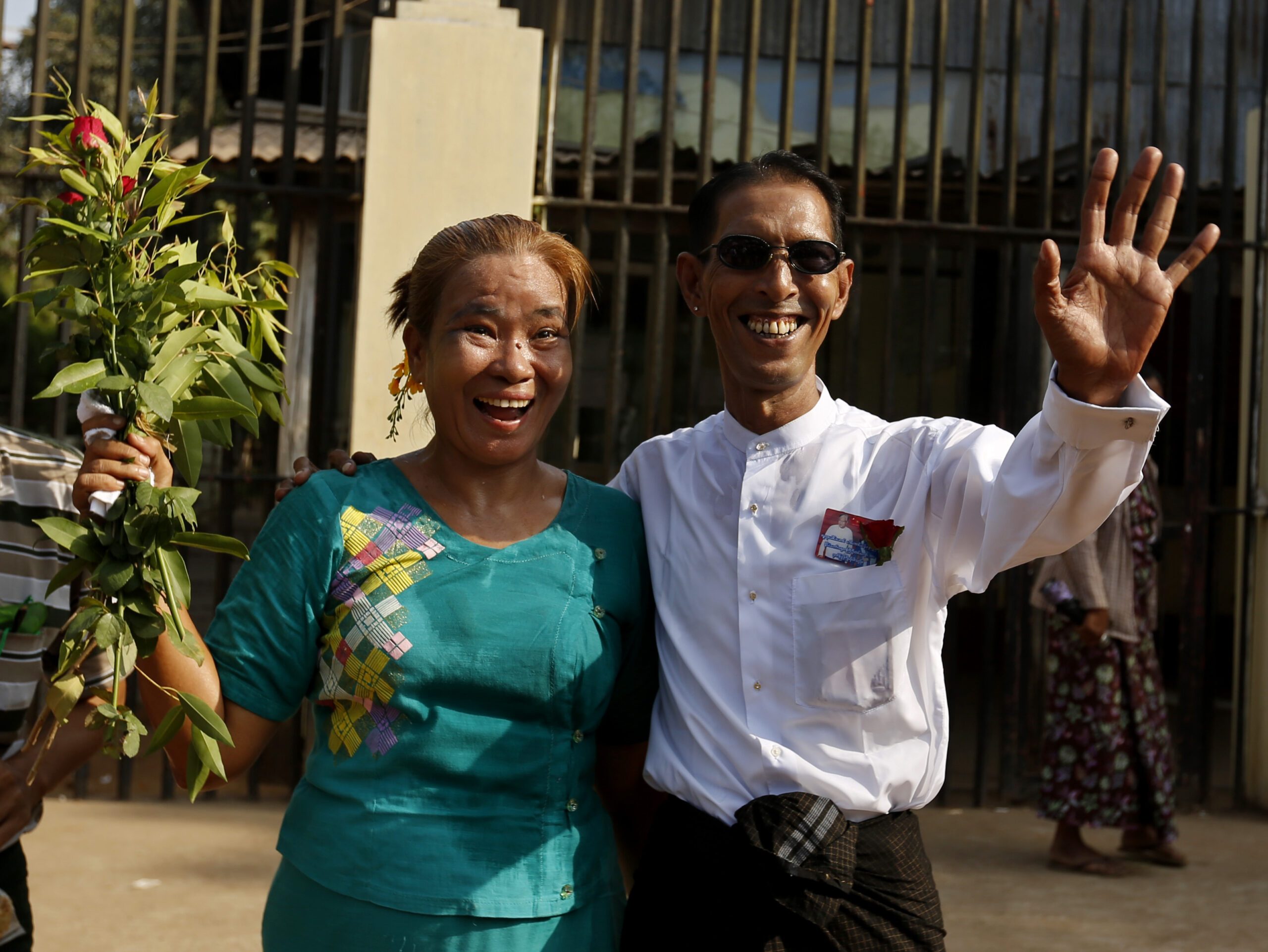SUMMARY
This is AI generated summarization, which may have errors. For context, always refer to the full article.

YANGON, Myanmar (UPDATED) – Myanmar President Htin Kyaw pardoned 83 political prisoners on the country’s traditional New Year Sunday, April 17, a spokesman from his office said, as the fledgling civilian-led administration seeks to cast off the shackles of nearly half a century of military rule.
The new government, steered by veteran democracy activist Aung San Suu Kyi, has spent its first weeks in power freeing scores of political activists prosecuted under the country’s former military leaders.
“All of the 83 prisoners that the president gave amnesty to today are political prisoners and prisoners concerned with political cases,” Zaw Htay, the deputy director of the president’s office, told AFP.
A presidential pardon published Sunday morning said the amnesty was granted to “make people feel happy and peaceful, and (promote) national reconciliation during the New Year.”
The former junta’s routine jailing of dissidents was one of many repressive policies that garnered support for the democracy struggle led by Suu Kyi and her National League for Democracy (NLD), which swept historic polls in November.
The party is stacked with ex-political prisoners who were jailed for their activism under the former military regime.
Suu Kyi, who spent some 15 years under house arrest during the dark junta days, oversaw her government’s first amnesty push earlier this month, when authorities dropped charges against nearly 200 political activists ahead of the New Year holiday.
The former quasi-civilian government that replaced junta rule in 2011 also freed hundreds of political detainees, but oversaw the detention of scores more.
Families reunited
Local media aired joyful reunion scenes as released prisoners left jails across the country, carrying small bags of belongings and joining loved ones in song outside the prison gates.
Among those pardoned Sunday were 5 journalists handed 10-year sentences in 2014 over a report accusing the military of producing chemical weapons – which the government denied.
The journalists’ sentence, which was later reduced to 7 years, was slammed by rights groups as “outrageously harsh.”
“We have been looking forward to hearing good news from this new government,” Yarzar Oo, one of the reporters from Unity Weekly News, told AFP by phone after his release from Pakokku Prison in Magway region.
The group was greeted with flowers by their relatives, who gathered at the prison the night before after learning of their release, he said.
Others seen released in local media reports included Htin Lin Oo, a writer and former NLD information officer, and Htin Kyaw, a well-known democracy activist who shares the president’s name and spent more than a decade in and out of the country’s notorious prisons.
“The release is welcome, but the NLD needs to release more political prisoners as soon as possible” said Bo Kyi from the Assistance Association for Political Prisoners (AAPP), a watchdog group that tracks information about the country’s prisoners of conscience.
There are still dozens of political prisoners and hundreds of others facing trial, he told AFP.
In a New Year speech Sunday, President Htin Kyaw – an ally and close friend of Suu Kyi – stressed his administration’s determination to free all political activists facing prosecution.
Suu Kyi is banned from the presidency by a junta-era charter but is guiding her party’s government through her seats in the cabinet and a newly-fashioned role as state counselor.
The novice administration is carrying the hopes of millions of voters hungry for greater freedoms and economic rejuvenation after decades of military strangulation.
But many challenges lie ahead, including a deeply flawed legal system, the military’s continuing clout, high poverty rates, and civil wars in several ethnic minority states. – Athens Zaw Zaw, AFP / Rappler.com
Add a comment
How does this make you feel?
There are no comments yet. Add your comment to start the conversation.